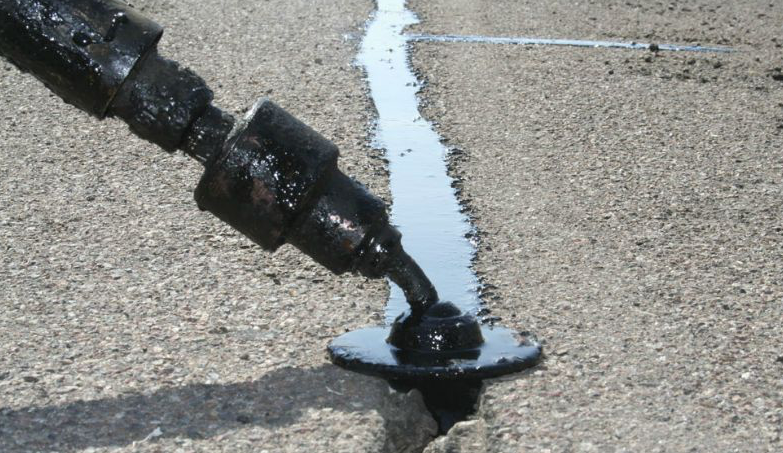Boost Durability with Cold Mix Asphalt: Expert Sealing Solutions
Boost Durability with Cold Mix Asphalt: Expert Sealing Solutions
Blog Article
Cold Mix Asphalt Vs. Hot Mix Asphalt: Which Is Right for You?

Composition Differences
Cold mix and warm mix asphalts vary substantially in their composition, with distinct qualities that influence their efficiency and applications. Cold mix asphalt is generated by emulsifying the asphalt binder with water and an emulsifying agent before mixing it with aggregate. This technique enables for the asphalt to be practical at lower temperature levels, making it optimal for short-term repairs and for use in cooler climate condition. Hot mix asphalt, on the other hand, is manufactured at high temperatures, commonly in between 300-350 ° F, which helps to accomplish far better compaction and an extra long lasting end product. The warm mix asphalt production procedure entails heating the accumulation and asphalt binder individually before incorporating them at the asphalt plant.
Furthermore, cold mix asphalt tends to be much less thick and extra adaptable than warm mix asphalt. This versatility makes it better suited for areas with higher degrees of movement, such as driveways or roadways with heavy web traffic. In contrast, hot mix asphalt is known for its high toughness and resistance to rutting and fracturing, making it a preferred selection for highways and high-traffic roadways where longevity is essential.
Installment Refine Variations
The process of setting up cool mix and hot mix asphalt shows significant differences in their requirements and treatments. Cold mix asphalt, being a much more flexible product, can be applied straight from the bag or container onto the pit or damaged area. It requires very little preparation job, such as cleansing the area and condensing the cold mix with hand tools. This makes it a convenient alternative for temporary and fast fixes. On the other hand, warm mix asphalt requires a more fancy installation procedure. It includes warming the mixture to heats before laying it down on an effectively prepared base. The preparation includes condensing the base, applying a tack layer, and using heavy equipment like pavers and compactors for a long lasting and smooth coating. As a result of the home heating demands, warm mix asphalt installments are generally performed by specialists with customized tools, making certain a more structurally audio and permanent result.
Sturdiness and Durability Factors
When taking into consideration asphalt options, durability and long life are vital aspects to evaluate for lasting pavement efficiency. Hot mix asphalt (HMA) is known for its extraordinary toughness and longevity.
In terms of long life, HMA normally exceeds CMA due to its superior strength and resistance residential or commercial properties. HMA sidewalks have a longer life span, calling asphalt patch repair for much less frequent repair work and upkeep, which can equate to set you back savings in the future. Additionally, HMA pavements are a lot more conveniently adjustable to fulfill details task needs, better boosting their toughness.
Cost Factors To Consider
Thinking about the financial implications is a vital element when examining the choice between hot mix asphalt (HMA) and chilly mix asphalt (CMA) for pavement jobs. While the first price of warm mix asphalt is commonly greater than that of cool mix asphalt, HMA usually supplies a much more cost-efficient solution in the lengthy run due to its remarkable toughness and long life. HMA is known for its capacity to hold up against hefty web traffic loads and severe weather, lowering the demand for constant repair services and maintenance. On the other hand, cool mix asphalt is extra cost effective ahead of time however may call for even more frequent patching and resurfacing, bring about greater maintenance expenses in time.
In enhancement to product prices, it's vital to think about the costs connected with setup and maintenance when contrasting HMA and CMA. Eventually, the decision in between HMA and CMA must take into account not simply the preliminary cost however additionally the long-lasting monetary effects to determine the most affordable option for the specific sidewalk job.
Environmental Influence Contrast
Contrast of the environmental impacts between warm mix asphalt (HMA) and cool mix asphalt (CMA) reveals unique differences in sustainability techniques. HMA production calls for high temperature levels, leading to increased power consumption and greenhouse gas emissions.
Furthermore, the use of CMA typically involves reusing existing asphalt sidewalk, promoting source preservation and decreasing the quantity of waste sent out to landfills. By deciding for CMA over HMA, roadway building jobs can contribute favorably to ecological preservation initiatives.
Verdict
To conclude, the choice between cold mix asphalt (CMA) and warm mix asphalt (HMA) relies on numerous elements such as structure, installation procedure, resilience, durability, price, and environmental effect. cold mix asphalt. While CMA offers a quick and affordable remedy for small repair services, HMA ensures exceptional resilience and long life for rush hour locations. Think about these elements thoroughly to establish which kind of asphalt is the best selection for your paving requires

Considering the monetary ramifications is a crucial element when evaluating the choice in between hot mix asphalt (HMA) and chilly mix asphalt (CMA) for pavement jobs. While the preliminary expense of warm mix asphalt is generally greater than that of cold mix asphalt, HMA frequently offers a much more cost-effective service in the long run due to its premium resilience and longevity. angle parking.Comparison of the environmental impacts in between warm mix asphalt (HMA) and chilly mix asphalt (CMA) exposes distinctive differences in sustainability techniques.In conclusion, the selection between cool mix asphalt (CMA) and warm mix asphalt (HMA) depends on various variables such as structure, installation procedure, durability, durability, expense, and environmental influence
Report this page